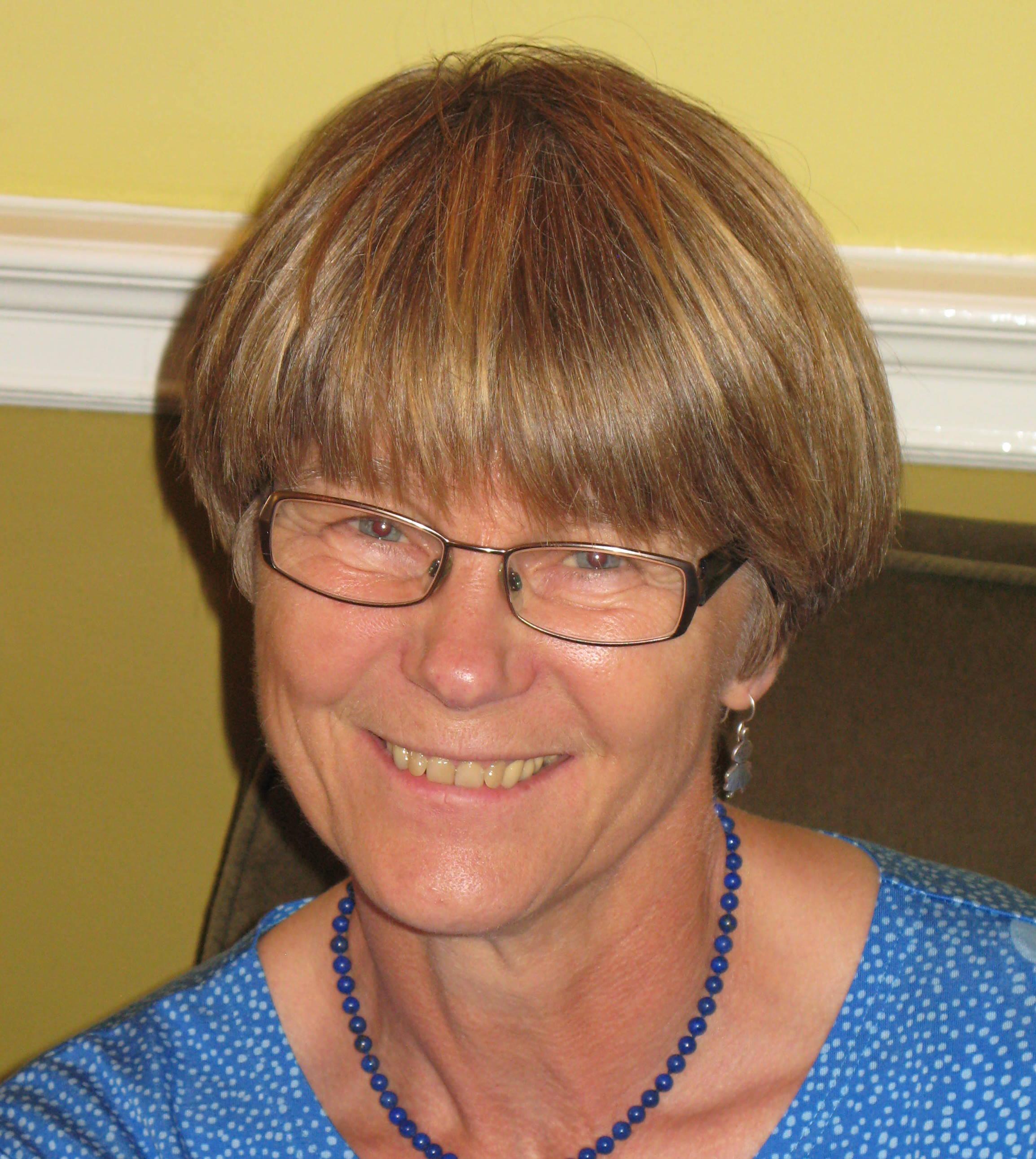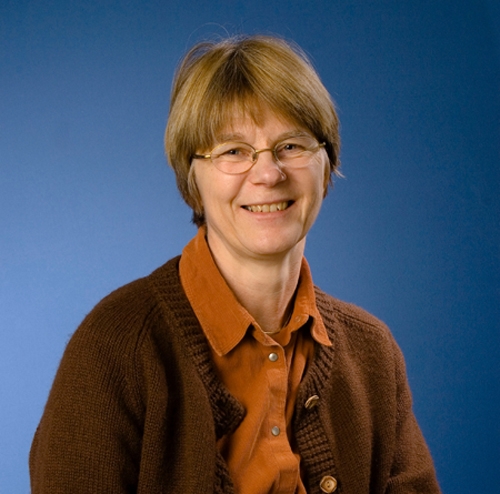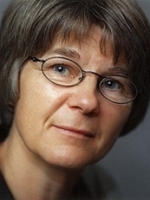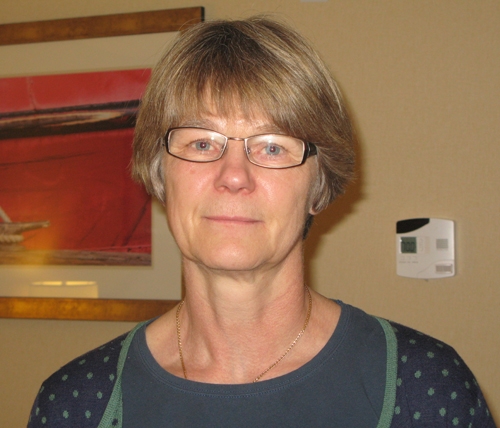Profile

Eva Magnusson
Birth:
1947
Training Location(s):
PhD, Umeå University (1998)
PhD, Uppsala University (1972)
Primary Affiliation(s):
Umeå University (1991-present)
Nordic Institute for Women's Studies and Gender Research (1998-2002)
Luleå Technical University (1981-1984)
Psychology’s Feminist Voices Oral History Interview:
Career Focus:
Gender equality; identity narratives; family and parenting; work-life balance; qualitative methods.
Biography
When asked about the emergence of her feminist identity, Magnusson states that she is "not sure [she] ever had any other identities." Although feminism may have always been a part of Magnusson's life, her activism very clearly began in the 1970s with a campaign to improve women's experience of breastfeeding: "It was a bunch of academic mothers who got together and decided we wanted to take our breasts back from the doctors...It was very much a political issue and...not being bound up in the medical establishment."
As one of the first generation in her family to pursue formal education beyond junior high school, Magnusson had no one with whom to discuss her academic options. She debated pursuing technology, physics, psychology and medicine. Psychology eventually won Magnusson over, but she always pushes the boundaries of psychological topics in her research. In hindsight Magnusson describes Psychology as the only place she could imagine being a research scientist as a woman: "I wanted to go to graduate school [in] technology and physics...there weren't any women doing that...I think I couldn't fathom, I couldn't picture myself there. In Psychology there were women taking psychology, so that was easier to imagine." Magnusson acknowledges that she had many feminist mentors. These women were not usually psychologists, which speaks to her interdisciplinary perspective and research.
During this time, Magnusson was married with two children and was studying psychophysiology and psychosomatics. In the 1970s, feminism was experiential, not theoretical for Magnusson: "It was very much about experiences. Noticing oppressions, noting transgressions, and being transgressive." Many shifts took place during this time, including her divorce and taking up a feminist dissertation topic.
When Magnusson and her colleagues approached the university to offer a Psychology of Women course in 1978 their response was "no way!" Their rationale was that women were only half of the population and if you had a course on women you would also need to have a special course for everybody. Of course Magnusson did not see the problem in designing courses relevant to different issues or people.
Early in her career Magnusson became interested in the workplace and in occupational health. As a psychologist in an occupational health organization she felt that she could integrate her feminist knowledge at a practical level. For example, she extended existing research projects to incorporate questions of women's health and women's issues within the organization. These questions for Magnusson were always practical; she sought to remap the workplace to foster equality as a form of preventative healthcare.
The road Magnusson traveled has not always been easy. In regard to doing feminist work in Psychology she regretfully states, "it was less possible than it is today, but it isn't very possible today either." One of the recent challenges she has faced was taking the blame for an episode in which female students told the press about sexism and sexual harassment within psychology. The students, "had broken this nice quiet façade and blurting it out in the newspaper was really a breech of etiquette." Magnusson is quick to point out that that although Sweden is progressive in terms of gender equity in politics and labor, sexism has not been eradicated.
In thinking through future directions for psychology, Magnusson hopes that feminists incorporate intersectionality. There is demand for more complexity and inclusion in the psychology curriculum: "[S]tudents are constantly complaining about the lack of gender issues, race/ethnicity issues, sexuality issues, you name it." Magnusson is currently auditing the curriculum to make recommendations as to how her university can move towards inclusionary education. In an inspiring statement, she comments, "the discipline should realize that a new time has come. The students are much more knowledgeable. They are much less ready to accept this narrow idea of what knowledge is, or what a psychologist should do."
When asked what advice she would offer future or current students of psychology, Magnusson suggests, "[D]on't put all your eggs in one basket. Learn things outside of the discipline, be promiscuous. Study gender, women's studies as much as you can and try to integrate it as much as you can into your professional training. And once you leave [the university] don't be alone. Keep contact once you have established some kind of network."
As a scholar inspired and moved by multiple disciplines (anthropology, technology, sociology, political science, and others), this interdisciplinary approach has allowed Magnusson to look at issues from multiple angles. It is this multiplicity that has colored Magnusson's research and perhaps is - in and of itself - a feminist value.
by Jenna MacKay (2010)
To cite this article, see Credits
Selected Works
Magnusson, Eva (2008) The rhetoric of inequality: Nordic women and men argue against sharing housework. NORA, Nordic Journal of Feminist and Gender Research, 16(2), 79-95.
Magnusson, Eva (2008) 'Conflict, danger and difference: Nordic heterosexual couples converse about gender equality and fairness.' In E. Magnusson, M. Rönnblom & H. Silius (Eds.), Critical studies of gender equalities: Nordic dislocations, dilemmas and contradictions (pp. 161-179). Göteborg: Makadambok förlag.
Haavind, H. & Magnusson, E. (2005) The Nordic countries - Welfare paradises for women and children? Feminism & Psychology, 15(2), 229-237.
Haavind, H. & Magnusson, E. (2005) Feminism, psychology and identity transformations in the Nordic countries. Feminism & Psychology, 15(2), 238-249.
Magnusson, E. (2000). Party-political rhetoric on gender equality in Sweden: The uses of uniformity and heterogeneity. NORA, Nordic Journal of Feminist and Gender Research, 8, 78-92.
Magnusson, E. (1999). Psychology and social theory on ideology. Theory & Psychology, 9, 395-400.
Photo Gallery




Eva Magnusson
Birth:
1947
Training Location(s):
PhD, Umeå University (1998)
PhD, Uppsala University (1972)
Primary Affiliation(s):
Umeå University (1991-present)
Nordic Institute for Women's Studies and Gender Research (1998-2002)
Luleå Technical University (1981-1984)
Psychology’s Feminist Voices Oral History Interview:
Career Focus:
Gender equality; identity narratives; family and parenting; work-life balance; qualitative methods.
Biography
When asked about the emergence of her feminist identity, Magnusson states that she is "not sure [she] ever had any other identities." Although feminism may have always been a part of Magnusson's life, her activism very clearly began in the 1970s with a campaign to improve women's experience of breastfeeding: "It was a bunch of academic mothers who got together and decided we wanted to take our breasts back from the doctors...It was very much a political issue and...not being bound up in the medical establishment."
As one of the first generation in her family to pursue formal education beyond junior high school, Magnusson had no one with whom to discuss her academic options. She debated pursuing technology, physics, psychology and medicine. Psychology eventually won Magnusson over, but she always pushes the boundaries of psychological topics in her research. In hindsight Magnusson describes Psychology as the only place she could imagine being a research scientist as a woman: "I wanted to go to graduate school [in] technology and physics...there weren't any women doing that...I think I couldn't fathom, I couldn't picture myself there. In Psychology there were women taking psychology, so that was easier to imagine." Magnusson acknowledges that she had many feminist mentors. These women were not usually psychologists, which speaks to her interdisciplinary perspective and research.
During this time, Magnusson was married with two children and was studying psychophysiology and psychosomatics. In the 1970s, feminism was experiential, not theoretical for Magnusson: "It was very much about experiences. Noticing oppressions, noting transgressions, and being transgressive." Many shifts took place during this time, including her divorce and taking up a feminist dissertation topic.
When Magnusson and her colleagues approached the university to offer a Psychology of Women course in 1978 their response was "no way!" Their rationale was that women were only half of the population and if you had a course on women you would also need to have a special course for everybody. Of course Magnusson did not see the problem in designing courses relevant to different issues or people.
Early in her career Magnusson became interested in the workplace and in occupational health. As a psychologist in an occupational health organization she felt that she could integrate her feminist knowledge at a practical level. For example, she extended existing research projects to incorporate questions of women's health and women's issues within the organization. These questions for Magnusson were always practical; she sought to remap the workplace to foster equality as a form of preventative healthcare.
The road Magnusson traveled has not always been easy. In regard to doing feminist work in Psychology she regretfully states, "it was less possible than it is today, but it isn't very possible today either." One of the recent challenges she has faced was taking the blame for an episode in which female students told the press about sexism and sexual harassment within psychology. The students, "had broken this nice quiet façade and blurting it out in the newspaper was really a breech of etiquette." Magnusson is quick to point out that that although Sweden is progressive in terms of gender equity in politics and labor, sexism has not been eradicated.
In thinking through future directions for psychology, Magnusson hopes that feminists incorporate intersectionality. There is demand for more complexity and inclusion in the psychology curriculum: "[S]tudents are constantly complaining about the lack of gender issues, race/ethnicity issues, sexuality issues, you name it." Magnusson is currently auditing the curriculum to make recommendations as to how her university can move towards inclusionary education. In an inspiring statement, she comments, "the discipline should realize that a new time has come. The students are much more knowledgeable. They are much less ready to accept this narrow idea of what knowledge is, or what a psychologist should do."
When asked what advice she would offer future or current students of psychology, Magnusson suggests, "[D]on't put all your eggs in one basket. Learn things outside of the discipline, be promiscuous. Study gender, women's studies as much as you can and try to integrate it as much as you can into your professional training. And once you leave [the university] don't be alone. Keep contact once you have established some kind of network."
As a scholar inspired and moved by multiple disciplines (anthropology, technology, sociology, political science, and others), this interdisciplinary approach has allowed Magnusson to look at issues from multiple angles. It is this multiplicity that has colored Magnusson's research and perhaps is - in and of itself - a feminist value.
by Jenna MacKay (2010)
To cite this article, see Credits
Selected Works
Magnusson, Eva (2008) The rhetoric of inequality: Nordic women and men argue against sharing housework. NORA, Nordic Journal of Feminist and Gender Research, 16(2), 79-95.
Magnusson, Eva (2008) 'Conflict, danger and difference: Nordic heterosexual couples converse about gender equality and fairness.' In E. Magnusson, M. Rönnblom & H. Silius (Eds.), Critical studies of gender equalities: Nordic dislocations, dilemmas and contradictions (pp. 161-179). Göteborg: Makadambok förlag.
Haavind, H. & Magnusson, E. (2005) The Nordic countries - Welfare paradises for women and children? Feminism & Psychology, 15(2), 229-237.
Haavind, H. & Magnusson, E. (2005) Feminism, psychology and identity transformations in the Nordic countries. Feminism & Psychology, 15(2), 238-249.
Magnusson, E. (2000). Party-political rhetoric on gender equality in Sweden: The uses of uniformity and heterogeneity. NORA, Nordic Journal of Feminist and Gender Research, 8, 78-92.
Magnusson, E. (1999). Psychology and social theory on ideology. Theory & Psychology, 9, 395-400.



